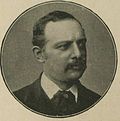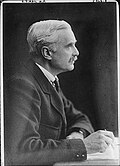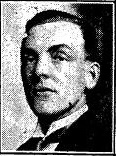Election results, 1873–1918
Elections in the 1870s
Armitstead resigned, causing a by-election.
| Party | Candidate | Votes | % | ±% | |
|---|---|---|---|---|---|
| Liberal | James Yeaman | 5,297 | 51.0 | N/A | |
| Liberal | Edward Jenkins | 4,010 | 38.6 | N/A | |
| Liberal | James Fitzjames Stephen | 1,086 | 10.4 | N/A | |
| Majority | 1,287 | 12.4 | −7.1 | ||
| Turnout | 10,393 | 62.4 | −8.7 | ||
| Registered electors | 16,652 | ||||
| Liberal hold | Swing | N/A | |||
| Party | Candidate | Votes | % | ±% | |
|---|---|---|---|---|---|
| Liberal | James Yeaman | 6,595 | 33.2 | −3.6 | |
| Liberal | Edward Jenkins | 6,048 | 30.5 | N/A | |
| Liberal | John Ogilvy | 4,401 | 22.2 | −14.2 | |
| Liberal | John Meiklejohn | 2,231 | 11.2 | N/A | |
| Conservative | John Austin Lake Gloag [18] | 573 | 2.9 | New | |
| Majority | 1,647 | 8.3 | −11.2 | ||
| Turnout | 10,211 (est) | 57.3 (est) | −13.8 | ||
| Registered electors | 17,814 | ||||
| Liberal hold | Swing | N/A | |||
| Liberal hold | Swing | N/A | |||
Elections in the 1880s
| Party | Candidate | Votes | % | ±% | |
|---|---|---|---|---|---|
| Liberal | George Armitstead | 9,168 | 43.8 | N/A | |
| Liberal | Frank Henderson | 6,750 | 32.3 | N/A | |
| Conservative | James Yeaman | 4,993 | 23.9 | +21.0 | |
| Majority | 1,757 | 8.4 | +0.1 | ||
| Turnout | 14,161 (est) | 97.2 (est) | +39.9 | ||
| Registered electors | 14,566 | ||||
| Liberal hold | Swing | N/A | |||
| Liberal hold | Swing | N/A | |||
| Party | Candidate | Votes | % | ±% | |
|---|---|---|---|---|---|
| Liberal | Charles Lacaita | 8,261 | 30.7 | −13.1 | |
| Liberal | Edmund Robertson | 7,187 | 26.7 | −5.6 | |
| Independent Liberal | Alexander Hay Moncur | 6,279 | 23.4 | New | |
| Conservative | Edward Jenkins | 5,149 | 19.2 | −4.7 | |
| Majority | 908 | 3.3 | −5.1 | ||
| Turnout | 14,623 | 83.9 | −13.3 (est) | ||
| Liberal hold | Swing | −4.2 | |||
| Liberal hold | Swing | −0.5 | |||
| Party | Candidate | Votes | % | ±% | |
|---|---|---|---|---|---|
| Liberal | Edmund Robertson | 8,236 | 35.3 | +8.6 | |
| Liberal | Charles Lacaita | 8,216 | 35.2 | +4.5 | |
| Liberal Unionist | Brinsley de Courcy Nixon | 3,545 | 15.2 | −4.0 | |
| Liberal Unionist | Henry Daly | 3,346 | 14.3 | N/A | |
| Majority | 4,671 | 20.0 | +16.7 | ||
| Turnout | 11,893 | 68.3 | −15.6 | ||
| Registered electors | 17,420 | ||||
| Liberal hold | Swing | +6.3 | |||
| Liberal hold | Swing | +4.3 | |||
Lacita's resignation caused a by-election.

| Party | Candidate | Votes | % | ±% | |
|---|---|---|---|---|---|
| Liberal | Joseph Bottomley Firth | 7,856 | 65.1 | −5.4 | |
| Liberal Unionist | Henry Daly | 4,217 | 34.9 | +5.4 | |
| Majority | 3,639 | 30.2 | +10.2 | ||
| Turnout | 12,073 | 72.7 | +4.4 | ||
| Registered electors | 16,613 | ||||
| Liberal hold | Swing | −5.4 | |||
Firth's death caused a by-election.
| Party | Candidate | Votes | % | ±% | |
|---|---|---|---|---|---|
| Liberal | John Leng | Unopposed | |||
| Liberal hold | |||||
Elections in the 1890s

| Party | Candidate | Votes | % | ±% | |
|---|---|---|---|---|---|
| Liberal | John Leng | 8,484 | 30.5 | −4.7 | |
| Liberal | Edmund Robertson | 8,191 | 29.5 | −5.8 | |
| Conservative | William Dalgleish | 5,659 | 20.4 | +5.2 | |
| Liberal Unionist | William Charles Smith (politician) | 5,066 | 18.3 | +4.0 | |
| Scottish Labour | James MacDonald | 354 | 1.3 | New | |
| Majority | 2,532 | 9.1 | −10.9 | ||
| Turnout | 14,025 (est) | 77.0 | +8.7 | ||
| Registered electors | 18,214 | ||||
| Liberal hold | Swing | −5.0 | |||
| Liberal hold | Swing | −5.5 | |||
Robertson is appointed Civil Lord of the Admiralty, requiring a by-election.
| Party | Candidate | Votes | % | ±% | |
|---|---|---|---|---|---|
| Liberal | Edmund Robertson | Unopposed | |||
| Liberal hold | |||||

| Party | Candidate | Votes | % | ±% | |
|---|---|---|---|---|---|
| Liberal | Edmund Robertson | 7,602 | 29.0 | −0.5 | |
| Liberal | John Leng | 7,592 | 28.9 | −1.6 | |
| Liberal Unionist | William Charles Smith (politician) | 5,390 | 20.6 | +2.3 | |
| Conservative | Edward Jenkins | 4,318 | 16.5 | −3.9 | |
| Ind. Labour Party | James MacDonald | 1,313 | 5.0 | +3.7 | |
| Majority | 2,202 | 8.3 | −0.8 | ||
| Turnout | 13,490 (est) | 74.9 | −2.1 | ||
| Registered electors | 18,011 | ||||
| Liberal hold | Swing | −1.4 | |||
| Liberal hold | Swing | +1.2 | |||
Elections in the 1900s

| Party | Candidate | Votes | % | ±% | |
|---|---|---|---|---|---|
| Liberal | Edmund Robertson | 7,777 | 30.2 | +1.2 | |
| Liberal | John Leng | 7,650 | 29.7 | +0.8 | |
| Conservative | Alexander Duncan Smith | 5,181 | 20.1 | +3.6 | |
| Liberal Unionist | J.E. Graham | 5,152 | 20.0 | −0.6 | |
| Majority | 2,469 | 9.6 | +1.3 | ||
| Turnout | 25,760 | 69.5 | −5.4 | ||
| Registered electors | 18,655 | ||||
| Liberal hold | Swing | −1.2 | |||
| Liberal hold | Swing | −1.4 | |||


| Party | Candidate | Votes | % | ±% | |
|---|---|---|---|---|---|
| Liberal | Edmund Robertson | 9,276 | 31.7 | +1.5 | |
| Labour Repr. Cmte. | Alexander Wilkie | 6,833 | 23.3 | New | |
| Liberal | Sir Henry Robson | 6,122 | 20.9 | −8.8 | |
| Liberal Unionist | Ernest Shackleton | 3,865 | 13.2 | −6.8 | |
| Conservative | Alexander Duncan Smith | 3,183 | 10.9 | −9.2 | |
| Turnout | 29,279 | 81.9 | +12.4 | ||
| Registered electors | 19,492 | ||||
| Majority | 5,411 | 18.5 | +8.9 | ||
| Liberal hold | Swing | +4.2 | |||
| Majority | 711 | 2.4 | N/A | ||
| Labour Repr. Cmte. gain from Liberal | Swing | N/A | |||

| Party | Candidate | Votes | % | ±% | |
|---|---|---|---|---|---|
| Liberal | Winston Churchill | 7,079 | 43.9 | −8.7 | |
| Liberal Unionist | George Washington Baxter, 1st Baronet | 4,370 | 27.1 | −3.0 | |
| Labour | G. H. Stuart-Bunning | 4,014 | 24.9 | +1.6 | |
| Scottish Prohibition | Edwin Scrymgeour | 655 | 4.1 | New | |
| Majority | 2,709 | 16.8 | −1.7 | ||
| Turnout | 16,138 | 84.6 | +2.7 | ||
| Registered electors | 19,041 | ||||
| Liberal hold | Swing | −2.9 | |||
Elections in the 1910s

| Party | Candidate | Votes | % | ±% | |
|---|---|---|---|---|---|
| Liberal | Winston Churchill | 10,747 | 34.1 | −8.5 | |
| Labour | Alexander Wilkie | 10,365 | 32.9 | +9.6 | |
| Conservative | John Hall Seymour Lloyd | 4,552 | 14.4 | +3.5 | |
| Liberal Unionist | James Glass | 4,339 | 13.8 | +0.6 | |
| Scottish Prohibition | Edwin Scrymgeour | 1,512 | 4.8 | N/A | |
| Turnout | 31,515 | 86.1 | +4.2 | ||
| Registered electors | 19,374 | ||||
| Majority | 6,195 | 19.7 | +1.2 | ||
| Liberal hold | |||||
| Majority | 5,813 | 18.5 | +16.1 | ||
| Labour hold | |||||
- ↑ Compared to combined Liberal vote at 1906 election
| Party | Candidate | Votes | % | ±% | |
|---|---|---|---|---|---|
| Liberal | Winston Churchill | 9,240 | 30.1 | −4.0 | |
| Labour | Alexander Wilkie | 8,957 | 29.3 | −3.6 | |
| Liberal Unionist | George Washington Baxter, 1st Baronet | 5,685 | 18.6 | +4.8 | |
| Conservative | John Hall Seymour Lloyd | 4,914 | 16.0 | +1.6 | |
| Scottish Prohibition | Edwin Scrymgeour | 1,825 | 6.0 | +1.2 | |
| Turnout | 30,621 | 84.1 | −2.0 | ||
| Registered electors | 19,118 | ||||
| Majority | 3,555 | 11.5 | −8.2 | ||
| Liberal hold | |||||
| Majority | 3,272 | 10.7 | −7.8 | ||
| Labour hold | |||||
| Party | Candidate | Votes | % | ±% | |
|---|---|---|---|---|---|
| Liberal | Winston Churchill | 7,302 | 78.2 | +58.1 | |
| Scottish Prohibition | Edwin Scrymgeour | 2,036 | 21.8 | +15.8 | |
| Majority | 5,266 | 56.4 | +44.9 | ||
| Turnout | 9,338 | 42.5 | −41.6 | ||
| Registered electors | 21,953 | ||||
| Liberal hold | Swing | +21.2 | |||
| Party | Candidate | Votes | % | ±% | |
|---|---|---|---|---|---|
| C | Liberal | Winston Churchill | 25,788 | 37.5 | +7.4 |
| Labour | Alexander Wilkie | 24,822 | 36.1 | +6.8 | |
| Scottish Prohibition | Edwin Scrymgeour | 10,423 | 15.1 | +9.1 | |
| Labour | James Sunney Brown | 7,769 | 11.3 | N/A | |
| Turnout | 68,802 | 46.6 | −37.5 | ||
| Majority | 15,365 | 22.4 | +10.9 | ||
| Liberal hold | |||||
| Majority | 14,399 | 21.0 | +10.3 | ||
| Labour hold | |||||
| Cindicates candidate endorsed by the coalition government. | |||||
In 1918 Wilkie and Churchill were officially supported by the Dundee Unionist Party Association in addition to their own party organisations. [27]




